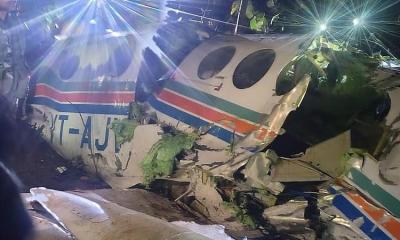A growing trend of coordinated action by member states, including sanctions targeting key financial institutions and jet fuel, is offering the hope of a more effective path forward to weaken a military junta that is driving Myanmar deeper into a human rights and humanitarian crisis.
This was relayed by Tom Andrews, UN special rapporteur on the situation of human rights in Myanmar, in remarks to the General Assembly’s third committee in New York.
“The junta continues to attack the people of Myanmar with the relentless bombing of villages, hospitals, schools, and camps for internally displaced persons. But non-Myanmar nationals are also being victimised by transnational criminal enterprises, including scam operations that are flourishing on the border," said Andrews.
“Now is the time for UN Member States to strengthen and coordinate actions that weaken the junta,” Andrews said. “A world beset by conflagrations of mass violence must not lose sight of the runaway fire of brutality and human rights violations that is burning in Myanmar, threatening the lives of millions and eroding regional stability,” he said.
In his report to the UN General Assembly, Andrews highlighted the junta’s attacks against civilians, including reports of mass killings, beheadings, torture, sexual and gender-based violence, forced labour, and the use of human shields by junta forces.
Massive humanitarian needs have been exacerbated by the junta’s deliberate obstruction of the delivery of lifesaving aid, according to the report. Rohingya refugees in Bangladesh have endured drastic cuts in food rations even as they face the threat of coercive repatriation back into the hands of the same military forces whose genocidal attacks forced them over the border.
“Junta leaders would like the world to believe that only they can restore peace and stability in Myanmar. The opposite is true. The junta is an agent of chaos and violence, creating a vacuum of governance in the country that is increasingly impacting Myanmar’s neighbours and the international community,” Andrews said.
While condemning the actions of Member States that supply the junta with arms and provide other forms of material or diplomatic support, Andrews praised positive actions taken by governments to deprive the junta of weapons, money, and legitimacy.
“Sanctions targeting aviation fuel and key financial institutions relied on by the junta are potent measures that could help alleviate the suffering of the people of Myanmar and push the country back towards the path to democracy,” the Special Rapporteur said.
“Some of Myanmar’s neighbours have boycotted diplomatic and defence summits attended by junta officials and denounced the junta’s plans to hold fraudulent elections,” Andrews said.
“The international community must build on the momentum created by these positive developments through a working coalition of states that are committed to human rights and engaging in coordinated actions that add up to a powerful whole,” he said. “The people of Myanmar deserve no less.”




-20260226080139.webp)



-20260223082704.webp)










-20260225072312.webp)










-20260219054530.webp)
-20260224075258.webp)





-20260221022827.webp)